Five of the most drastic U-turns in British politics
Liz Truss replaces her chancellor and scraps his corporation tax proposals
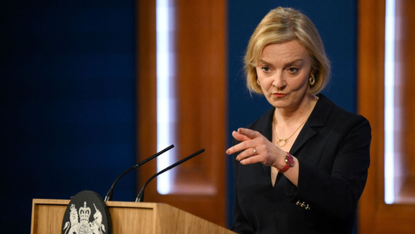
Liz Truss has sacked her chancellor, Kwasi Kwarteng, and announced a reversal of their promise to freeze corporation tax.
Tory MPs had warned “that the markets had left them with no choice in the matter”, with the economic turmoil forcing the PM to rethink her plans, said The Times.
Truss confirmed that corporation tax would rise from 19% to 25% this afternoon, after Kwarteng’s mini budget three weeks ago “quickly turned into an economic and political disaster”, said the Financial Times.
Subscribe to The Week
Escape your echo chamber. Get the facts behind the news, plus analysis from multiple perspectives.

Sign up for The Week's Free Newsletters
From our morning news briefing to a weekly Good News Newsletter, get the best of The Week delivered directly to your inbox.
From our morning news briefing to a weekly Good News Newsletter, get the best of The Week delivered directly to your inbox.
“We need to act now to reassure the markets of our fiscal discipline,” Truss said in a televised Downing Street press conference. “It is clear that parts of our ‘mini’ budget went further and faster than the markets were expecting. So the way we are delivering our mission right now has to change.”
Truss is not the first politician to backtrack on policies and promises. Here are some of the most damning U-turns in modern British politics.
Coup d'eTed
Top spot in the list has to go to Ted Heath, who, according to The Guardian’s Tim Bale, was the “undisputed king of the U-turn”. He didn’t just go back on a solo scheme; he went back on an entire manifesto.
In 1970, the Tories’ general election promises focused on cutting back public expenditure. Once in power, however, as unemployment rose to more than one million for the first time since 1947 and the country was hit by strike after strike, Heath had to back down, pouring money into the NHS, education and welfare.
Ultimately, this cost him the political premiership – and the leadership of the party, paving the way for Margaret Thatcher to take over.
Pastygate
Who would have thought the humble pasty could challenge a prominent politician?
Former chancellor George Osborne is infamous for his U-turn on the pastry’s tax credentials after his decision in 2012 to impose VAT on hot baked goods prompted a public outcry.
Bakery chain Greggs threatened job cuts, the Cornish community protested and commentators decried it as an austerity step too far.
The consequence was a humiliating reversal of Osborne’s policy, an episode that will forever be known as “Pastygate”.
Tuition fees
Once in office in the coalition, deputy prime minister Nick Clegg reversed his manifesto pledge as leader of “student party” the Liberal Democrats and voted in favour of increasing tuition fees to £9,000 per academic year.
Despite later apologising for the U-turn, which caused furore at the time, Clegg’s ratings never recovered and the issue was seen by many as the reason the Lib Dems suffered such heavy losses in the 2015 general election.
Cannabis laws
The legal classification of cannabis has led to many scratched heads over the years.
In 2004, David Blunkett, home secretary in Tony Blair’s government, downgraded the drug from class B to class C, removing the threat of arrest for possession.
However, Blair’s successor as prime minister, Gordon Brown, reclassified it as a class B drug in 2009.
Even though Blunkett’s action was sanctioned by the Advisory Council on the Misuse of Drugs, the U-turn was seen as a “damning admission that Labour’s soft policy… was a mistake”, said the Evening Standard.
Scrapping the 10p tax rate
As chancellor in 2007, Brown announced he was getting rid of the 10p starting rate of income tax, which had existed since 1999.
The change meant all income above the personal allowance would be subject to the “basic rate” of income tax at 20 per cent.
The move led to a rebellion in the Labour ranks and widespread criticism from the public.
As a result, Alistair Darling was forced to borrow almost £3bn to compensate those affected when he took over at the Exchequer.
Create an account with the same email registered to your subscription to unlock access.
Sign up for Today's Best Articles in your inbox
A free daily email with the biggest news stories of the day – and the best features from TheWeek.com
-
 Nigeria's worsening rate of maternal mortality
Nigeria's worsening rate of maternal mortalityUnder the radar Economic crisis is making hospitals unaffordable, with women increasingly not receiving the care they need
By Harriet Marsden, The Week UK Published
-
 'Elevating Earth Day into a national holiday is not radical — it's practical'
'Elevating Earth Day into a national holiday is not radical — it's practical'Instant Opinion Opinion, comment and editorials of the day
By Harold Maass, The Week US Published
-
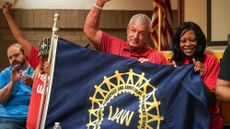 UAW scores historic win in South at VW plant
UAW scores historic win in South at VW plantSpeed Read Volkswagen workers in Tennessee have voted to join the United Auto Workers union
By Peter Weber, The Week US Published
-
 Liz Truss to save the West: is a political comeback really on the cards?
Liz Truss to save the West: is a political comeback really on the cards?Talking Point The former prime minister is back with a new tell-all memoir
By Richard Windsor, The Week UK Published
-
 Will Aukus pact survive a second Trump presidency?
Will Aukus pact survive a second Trump presidency?Today's Big Question US, UK and Australia seek to expand 'game-changer' defence partnership ahead of Republican's possible return to White House
By Sorcha Bradley, The Week UK Published
-
 Liz Truss and her bid to woo the American far-right
Liz Truss and her bid to woo the American far-rightWhy Everyone's Talking About Former PM pitching herself as 'bridge in transatlantic conservative movement'
By The Week UK Published
-
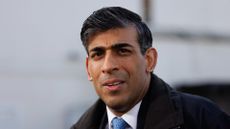 It's the economy, Sunak: has 'Rishession' halted Tory fightback?
It's the economy, Sunak: has 'Rishession' halted Tory fightback?Today's Big Question PM's pledge to deliver economic growth is 'in tatters' as stagnation and falling living standards threaten Tory election wipeout
By Harriet Marsden, The Week UK Published
-
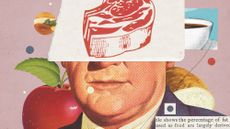 Fasting to burger buffets: the weird and wonderful diets of politicians
Fasting to burger buffets: the weird and wonderful diets of politiciansWhy Everyone's Talking About Rishi Sunak reportedly starts his week with a 36-hour fast
By Sorcha Bradley, The Week UK Published
-
 Why your local council may be going bust
Why your local council may be going bustThe Explainer Across England, local councils are suffering from grave financial problems
By The Week UK Published
-
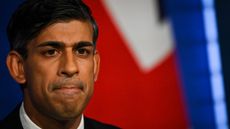 Rishi Sunak and the right-wing press: heading for divorce?
Rishi Sunak and the right-wing press: heading for divorce?Talking Point The Telegraph launches 'assault' on PM just as many Tory MPs are contemplating losing their seats
By Keumars Afifi-Sabet, The Week UK Published
-
 How would a second Trump presidency affect Britain?
How would a second Trump presidency affect Britain?Today's Big Question Re-election of Republican frontrunner could threaten UK security, warns former head of secret service
By Harriet Marsden, The Week UK Published